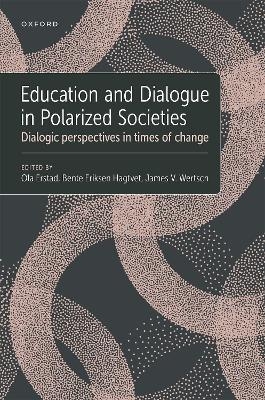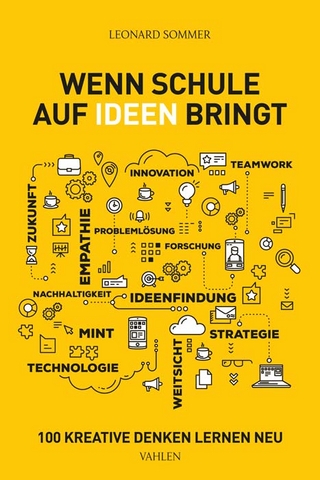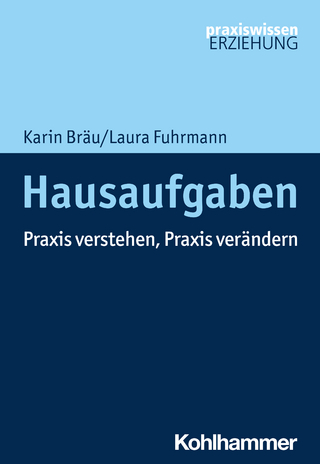
Education and Dialogue in Polarized Societies
Oxford University Press Inc (Verlag)
978-0-19-760542-4 (ISBN)
Professor Erstad is an internationally leading researcher with a focus on digital literacy, but firmly rooted in the wider social and cultural context of learning beyond the technological aspects. His areas of expertise are learning, technology and education, children and youth in modern society. Erstad has been leading several large-scale research projects and research networks funded by the Norwegian Research Council, Nordforsk and the EU, and is part of several international networks and committees. He has been elected as Chair for the Scientific Advisory Committee for Science Europe (2016-2018), and Vice-Chair for the COST Action of 'The digital literacy and multimodal practices of young children' (2015-2018). He has been visiting scholar/professor at the University of Southern-Denmark, University of Hong Kong, UC San Diego. Bente E. Hagtvet is a researcher of the learning and teaching of language and thinking with particular interests in in developmental and didactic perspectives on the transition from preschool to school and children's meeting with the written language, when in typical and untypical deveopment. She graduated from the University of Oslo, has taught at Universities in Sweden, Denmark and Finland and been a guest professor at the University of Oxford (1996-1996), Berkely University (the fall of 2007), University of Tromsø (2008-2010), At the University of Oslo she was Dean of Faculty (2002-2007) and has been leading a fair number of research projects over the years. James V. Wertsch is a scholar of language, thought, and culture, with a special focus on national memory and and narratives. After finishing his Ph.D. at the University of Chicago, Wertsch was a postdoctoral fellow at the USSR Academy of Sciences and Moscow State University, where he studied with the neuropsychologist A.R. Luria. Wertsch has held faculty positions at Northwestern University, the University of California, San Diego, Clark University, and Washington University in St. Louis, where he has also been Vice Chancellor for International Affairs. He is a fellow of the American Academy of Arts and Sciences and the Russian Academy of Education, and he holds honorary degrees from Linköping University and the University of Oslo. Wertsch has also served as a guest professor at the University of Oslo, the University of Bristol, the University of Seville, Tsinghua University in Beijing, and Fudan University in Shanghai.
Chapter 1 The Importance of Dialogue
1.1 Introduction
1.2 The importance of dialogue
1.3 The current dominance of monologic approaches
1.4 The dialogical rationale of this book: Key theoretical positions.
1.5 Dialogue and learning
1.6 The structure of the book
SECTION 1: THE LEGACY OF ROMMETVEIT
Chapter 2 The Role of Narratives in Dialogue and Intersubjectivity
2.1 Introduction
2.2 The influence of Rommetveit
2.3 Narrative as a Symbolic Tool
2.4 American National Narratives as Co-authors
2.5 Competing Narrative Templates
2.6 Dialogism, Intersubjectivity, and Narratives
Chapter 3 Ragnar Rommetveit on Contextures and Partially Shared Understandings
3.1 Introduction
3.2 Ragnar Rommetveit
3.3 On Rommetveit´s early attempts to describe contexts of languaging
3.4 Authentic situations I: Threatening phone calls
3.5 Authentic situations II: Situations suggesting sexual abuse of children
3.6 Authentic situations III: Hannah Arendt about Adolf Eichmann in Jerusalem
3.7 Authentic example IV: Putin´s on the war in Ukraine
3.8 On remote contexts and lost opportunities
3.9 Context atrophy in formal linguistics and in myopic interaction analysis
3.10 Coda: A note on macro-level phenomena
Chapter 4 Layered Attunement: Internal dialogues of intersubjectivity
4.1 Introduction
4.2 Dialogical negotiation beyond consciousness
4.3 The Polysemic Multivoiced Self (PMS)
4.4 Relations between voices: tensions and their negotiation
4.5 General Discussion: Learning with Rommetveit
SECTION 2: SOCIETAL CONDITONS FOR DIALOGUE AND THE ROLE OF EDUCATION
Chapter 5 The Limits and Potential of Dialogue to counter Polarization in Educative settings
5.1 Introduction: is dialogue disabled in polarized settings?
5.2 Dialogue as a remedy of polarization - the UNION project
5.3 What can dialogue do in situations of polarization according to the theory?
5.3.1 Can we design inclusive dialogical spaces for communities that are diverse?
5.3.2 (How) can dialogue function between parties with rival or incommensurable worldviews?
5.3.3 What can we learn from the very nature of intersubjectivty and its ability to bridge opposing worlds?
5.4 Implications for designing dialogical interventions
5.4.1 Design principles for dialogical interventions
5.5 Concluding thoughts: the need to go back to the rough ground
Chapter 6 Active citizenship and participation through
| Erscheinungsdatum | 25.04.2024 |
|---|---|
| Verlagsort | New York |
| Sprache | englisch |
| Maße | 236 x 165 mm |
| Gewicht | 567 g |
| Themenwelt | Sozialwissenschaften ► Pädagogik |
| ISBN-10 | 0-19-760542-7 / 0197605427 |
| ISBN-13 | 978-0-19-760542-4 / 9780197605424 |
| Zustand | Neuware |
| Haben Sie eine Frage zum Produkt? |
aus dem Bereich


